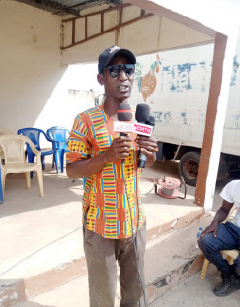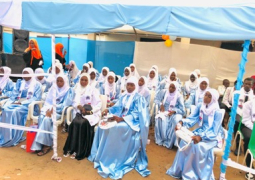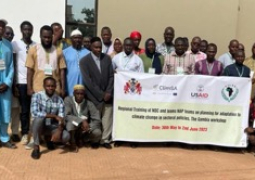
Sumai Jallow was speaking at Kuntaur Wharf Town during a recent presser to update journalists on some of the thematic areas the community has covered during the past years and what strategies the project used which enabled them to abandon the deeply rooted cultural practises of FGC among a host of other negative issues in the community.
“We were encountering lot of difficulties before the coming of the project in the community and the region at large. However, this has all become the things of the past, thanks to the rigorous engagement and sensitisation done by the project. They don’t come and enforce something on us nor did they ask us to abandon such practises forcefully. What they do was, to engage us, sensitise us and show us the negative impact involved in such practises.” he posited.
He admitted that abandoning FGC and other cultural practices in the area were a difficult move.
"However, other projects came to the area but they couldn’t succeed. The approach that Tostan used were different from other NGOs and through their engagement, we willingly abandon the practice.”
For her part, Isatou Camara observed that there are lots of difficulties involved in early marriage and FGC.
"Most of the people that went through the process do have difficulties during pregnancy and delivery. In fact, most of them loss blood during delivery and sometimes it can result to death,” she added.
“We also have ideas of engaging other communities that don’t benefit from the project. We will sensitise them and engage them on the negative impact of forceful marriage, teenage pregnancy among others. We now know the implications involved in the practises.” Amie Ndongo said.
Sheikh Omar Cham, explained that FGC results in health complications, adding that at some point, those doing the practise use one razor blade or knife on different individuals.
This, she added, could result in transmission of disease from one child to another.
"However, thanks to the intervention of the project, we now know the risk involved in the practise among others.”
"We were thinking that it’s only women that can participate in the up-bringing of children but which is the opposite. Before, we only clean village once or twice. However, now we clean it every end of month. During such exercise, the entire village participate in the cleaning exercise,” Abdoulie Gom.





